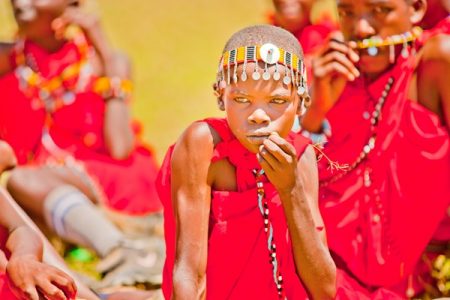Working with African people for many years, we have been constantly impressed with their initiative, leadership and awareness of their own social, economic and health care challenges.
These are not helpless people. They have many of the tools they need to improve their own systems, except financial and human resources.
With this in mind, Operation Eyesight has committed to working collaboratively with local governments and communities for the long-term health and well-being of the countries and their citizens.

Over our organization’s history, we have chosen to embody the concept of the Declaration of Alma-Ata. This international declaration, signed in 1978, emphasizes the importance of primary health care, which the World Health Organization categorizes as “geared toward self-reliance and self-determination.”
An excerpt from the declaration reads, “The people have the right and duty to participate individually and collectively in the planning and implementation of their health care…. Governments have a responsibility for the health of their people which can be fulfilled only by the provision of adequate health and social measures.”
Rather than sending expatriate medical staff to perform eye surgeries in the four African countries – Ghana, Kenya, Zambia and Rwanda – where we work, Operation Eyesight made a conscious decision to collaborate with local governments and citizens at community, regional and national levels.
We chose to not simply fund cataract surgeries; instead, we manage a comprehensive range of all levels of eye care, from training community workers to building or refurbishing hospital infrastructure.
We collaborate with local public health, water and sanitation departments and with ministries of health. The outcome? Supported, expanded and improved health systems. Such partnerships encourage the ownership and participation of communities, regions and countries that is crucial to sustainable development.
Return next week to learn about our goal for our work in Africa, and its long-reaching implications. Read more in our Winter newsletter about how we work “narrower and deeper” in these countries.

